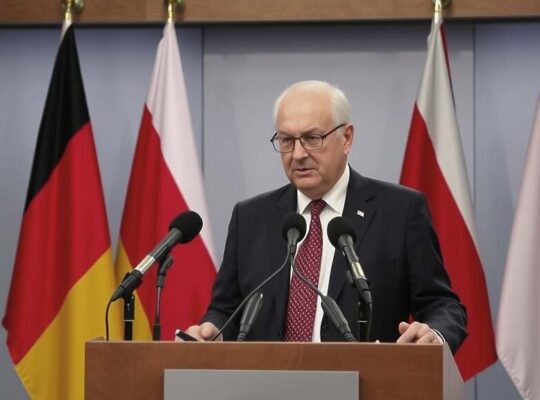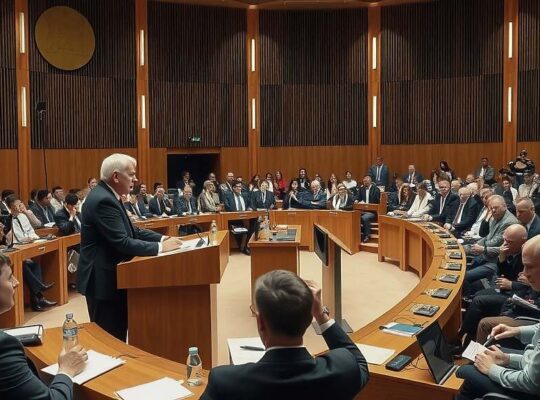Despite persistent breaches of the ceasefire in the Gaza Strip, the German government remains cautiously optimistic about the full implementation of the 20-point peace plan. Addressing the dts Nachrichtenagentur on Wednesday in Berlin, Deputy Government Spokesperson Steffen Meyer emphasized a fragile hope emerging from a region marked by decades of escalating tensions. “We have witnessed a dramatic intensification in the region in recent years and decades and for the first time in a long while, we see a pathway offering genuine hope for improvement” he stated.
Meyer’s remarks come amidst ongoing reports of violations of the fragile agreement, spurred by recent Israeli airstrikes and subsequent responses. While Hamas continues to publicly commit to the accord, the recurrent disruptions raise serious questions about its long-term viability.
The German government’s insistence on adherence to the plan, however, draws criticism from some quarters. Analysts point to the inherent power imbalance between the involved parties and the inherent difficulty in enforcing compliance from both Israeli forces and Palestinian factions such as Hamas. Critics argue that the plan, while presented as a potential solution, lacks concrete mechanisms to address the root causes of the conflict and hold perpetrators of violence accountable.
Moreover, the repeated instances of ceasefire infractions underscore the precarious nature of the situation and raise questions about the plan’s effectiveness in building lasting trust. While German officials advocate for unwavering commitment to the agreement, the reality on the ground suggests a challenging road ahead, demanding not only adherence to the outlined points but also a fundamental reassessment of the strategies employed to achieve sustainable peace in the region. The government’s continued endorsement of the plan, without directly addressing these critical shortcomings, risks being perceived as an endorsement of a solution that may ultimately prove inadequate to resolve the complex dynamics fueling the ongoing conflict.












